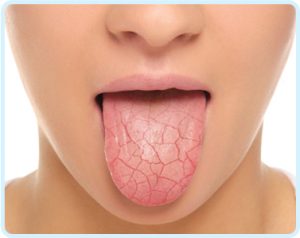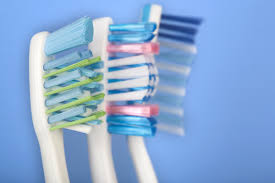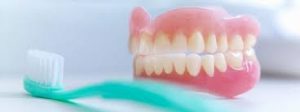It is well-known that your oral health affects your overall health. But did you know that dental health has correlations to Alzheimer’s disease, heart disease, and diabetes? In this series of blog posts, we’ll be delving into how oral health is linked to such extreme health conditions and what you can do about it.

In the last blog post, we discussed how poor oral hygiene and periodontitis may contribute to a heightened risk of Alzheimer’s disease. In this blog post, we will be delving into how carers, family, and friends can help patients maintain good oral hygiene in the face of the disease.
The Issues
People suffering from dementia and Alzheimer’s disease often experience reduced saliva as a side effect of the medication they are taking. Saliva is essential in maintaining healthy dental hygiene as it prevents tooth decay and other oral lesions. If the medication is also sugar-based, this will encourage dental decay and dry mouth (which will lead to difficulties putting in and taking out dentures).

Oftentimes, people suffering from Alzheimer’s disease may also change their eating habits where they replace their main meals with snacks, lollies, sugared tea, etc. As with the sugar-based medication, these will cause tooth decay and will lead to calculus build up, gum infection, and gum recession over time if left untreated.

In the intermediate to advanced stages of Alzheimer’s disease, the patient will experience noticeable difficulty or inability to independently maintain their oral hygiene as they will not be able to remember to do this on a regular basis or may not even recognise the need to.
How You Can Help
In the Early Stages of Alzheimer’s Disease
The patient can usually independently maintain their dental health at this stage. The key is to prevent dental decline as much as possible. This means that the patient and their caregiver should visit their dental practitioner 4-8 times a year for comprehensive check, scale, and cleans. This is the perfect opportunity for the dentist to evaluate the patient’s teeth and closely monitor their progress; the earlier pathology can be detected, the faster and simpler the treatment will be.

At home, the patient should use an electric toothbrush (if there are any natural teeth remaining and the electric toothbrush is not intolerable for the patient – otherwise a thorough manual brushing is necessary). This should be done with highly-fluoridated toothpaste; especially if the patient has any remaining natural teeth as the fluoride helps strengthen teeth enamel.

Brushing teeth with a soft toothbrush should be done at least twice a day (once in the morning and once in the evening) if not after every meal. Flossing is also necessary, at least once a day, with fluoride-impregnated floss if possible. Fluoride and/or antimicrobial rinses can also be used to help reduce dental decay and gum disease. The patient and caregiver should discuss this with their dentist as to whether or not this is necessary for the patient and what the dentist’s recommended usage/dosage would be.

The patient and caregiver should also discuss reducing the patient’s sugar intake to as minimal an amount as possible as sugar greatly impacts any remaining natural teeth. Consider replacing sugar with artificial sweeteners in drinks (or drinking water) and eating sugar-free snacks instead.
In the Intermediate to Advanced Stages of Alzheimer’s Disease
Many people in the intermediate to advanced stages of Alzheimer’s disease (and dementia) may be nonverbal and unable to express their pain or discomfort. Caregivers and family must monitor and understand any atypical behaviour that could be indicative of dental issues (like aversion to eating, the patient pulling at their face/strained facial expressions, or refusing dental treatment/basic oral hygiene care).

Visiting the dentist is crucial in these late stages. Make sure that the dentist is continually updated with the patient’s medical history and list of medications they are taking. The dentist and the dental team/staff may also be able to assist to minimise environmental issues when the patient comes for their regular check-up (e.g. by reducing any distressing noises or the number of people around).

In the intermediate stage, the dentist will continue to reinforce and train both the patient and caregiver on basic oral hygiene techniques and procedures and will still have a preventative focus. However, in the advanced stage, the strong medication the patient will most likely be taking will severely impact the oral environment of the patient’s mouth and could cause oral (tongue, gum, lip) ulcers, cracks in the corners of the mouth, etc.
When visiting the dentist, sedation or general anaesthesia may be necessary for treatment to be administered comfortably. In fact, in the advanced stage of Alzheimer’s disease, visiting the dentist may be extremely distressing for patients (regardless of the minimisation of environmental issues). Some dentists are able to do home visits to spare the patient such a distressing ordeal (as well as care for patients who are unable to travel).

At home, caregivers and family members will bear the increasing responsibility of helping the patient maintain their oral health as their condition worsens. To help the patient brush their teeth, here are some tips:
- All surfaces of all remaining natural teeth (especially hard-to-reach areas of the mouth that trap food like the cheek surfaces and in between teeth) should be brushed and/or flossed;
- Break down the task into smaller steps that would be clear and easy for the patient to follow. For example, start with “hold your toothbrush”, then “squeeze some toothpaste on the toothbrush”, then “brush your teeth”;
- The patient can also copy caregivers and family members if modelling the behaviour is easier or more understandable for the patient;
- The caregiver or family member can also place their hand over the patient’s hand and gently guide the toothbrush (this must be done gently and with no sudden or rigorous movements to avoid damaging the soft tissue in the patient’s mouth);
- If the caregiver or family member needs to brush the patient’s teeth themselves (and the patient is not involved in the brushing), firstly explain what you are going to do. When brushing someone else’s teeth, you can do so from the front, side, or behind – each person’s preference is different so experiment to determine what is most comfortable for both you and the patient; and
- If the patient clenches/spasms their lips or cheeks, the toothbrush may be used to help retract the lips or cheeks away from the teeth. To do so, run the plastic handle of the toothbrush under warm/hot water, and then bend the toothbrush backwards by 45 degrees.
Dry Mouth Solutions
Caregivers and family members should encourage and help the patient drink plenty of water. Also, spraying water into the mouth with a spray bottle could help with dry mouth though this will have to be consistent and regular. Some medications can also treat dry mouth but discuss these options with the patient’s doctor and dentist before taking any medication to ensure that it will not be interfering with the patient’s current Alzheimer’s medication.

Denture Care and Maintenance
If the patient does have a denture, the denture should be rinsed after every meal and thoroughly brushed at the end of every day. To brush, use a hard toothbrush/nailbrush/denture brush and plain soap and water. You should place a face towel/cloth in the sink and fill it with 5cm of water when cleaning the denture so the denture doesn’t crack if accidentally dropped.

Regularly cleaning the denture is the most important thing and can also be professionally cleaned if so desired. The denture should also be removed overnight and soaked in water. Partial denture clasps could be very damaging to the soft oral tissue and the tongue if worn incorrectly and they can be more difficult to remove than full dentures. In the later stages of dementia and Alzheimer’s disease, it may be best if the patient didn’t wear dentures at all but consult with the patient’s dentist about this.
